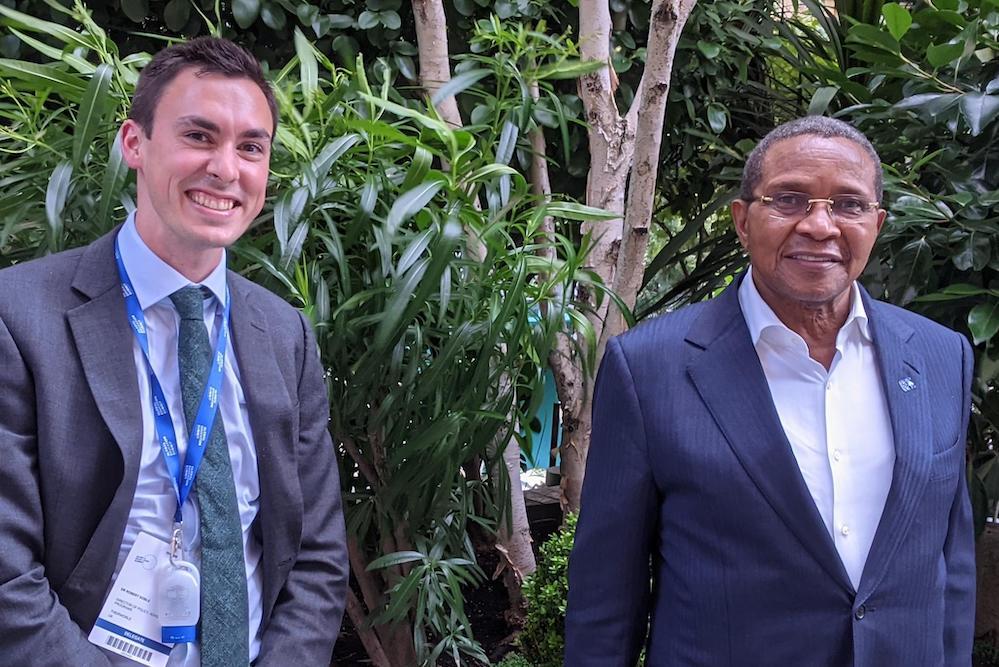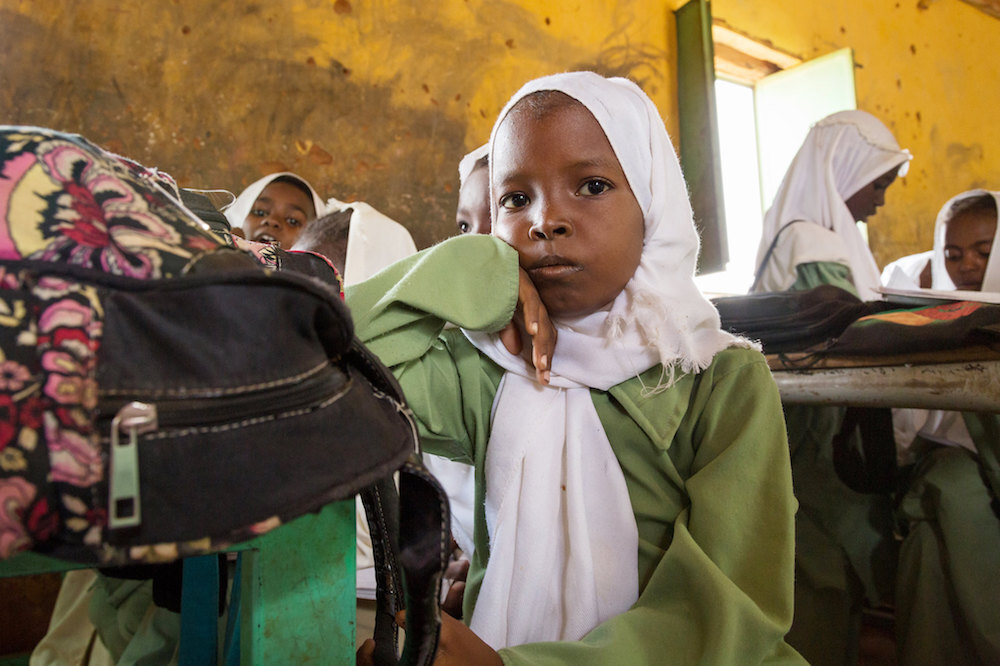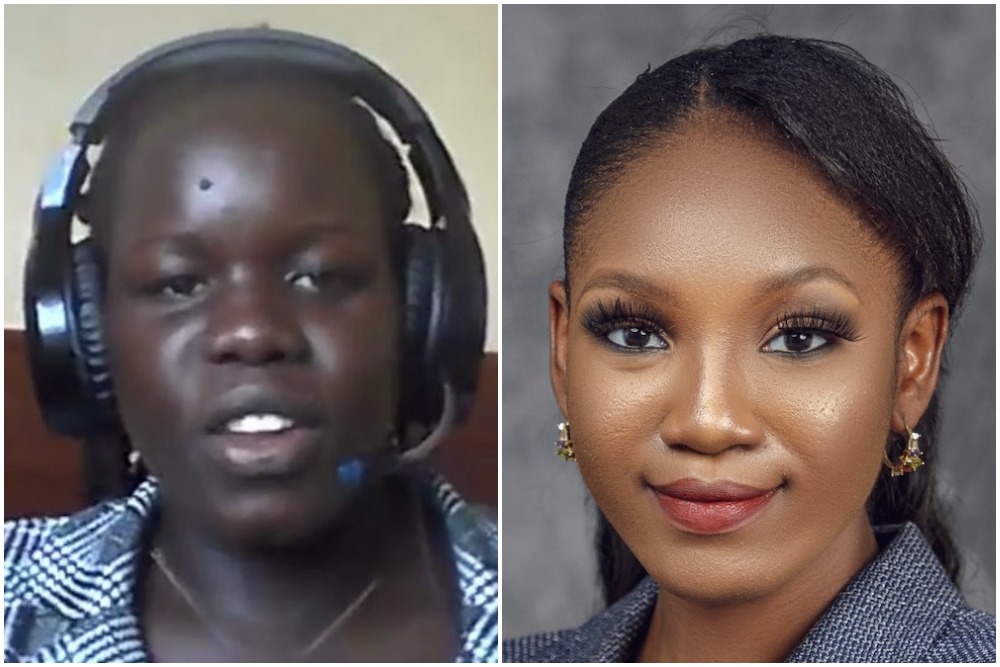
The voices of young people, strong leaders and businesses, all speaking up for education, give me hope

Education funding, Global Youth Ambassadors
Rob Doble - Theirworld's Director of Policy, Advocacy and Programmes - reflects on the Global Education Summit and calls for more urgent action on the learning crisis.
In London last week, leaders from donor and developing country governments gathered for the Global Education Summit 2021. The objective was to raise funds to help end the global education crisis.
This was the first in-person gathering for the global education community since the Covid-19 pandemic started and a critical opportunity to ensure political leaders are prioritising education as they navigate pandemic responses and recovery plans.
Before the pandemic, there was a global education crisis with more than 250 million children not accessing education and many more not learning basic reading and mathematics skills.
When Covid-19 struck, it closed schools and seriously impacted the education and learning for more than 90% of the world’s children (over 1.6 billion). It threatens to derail progress made on education in recent years and turn a crisis into a “generational catastrophe”, as United Nations Secretary-General António Guterres has warned.
So what happened at the summit? Firstly, donors committed $4 billion to the Global Partnership for Education (GPE) for the next five years to help them assist school systems in the world’s poorest countries. This was a strong start towards meeting GPE’s goal of $5 billion.
Secondly, 19 heads of state signed the “Kenyatta Declaration” – spearheaded by President Uhuru Kenyatta of Kenya – and committed to invest at least 20% of national budgets on education. That equates to around $192 billion in investments in education across those countries in the next five years.

The money raised at the summit will fund GPE’s work to help transform education systems in up to 90 countries and territories (Global Partnership for Education)
This is a welcome start but it simply doesn’t go anywhere near far enough. The funds raised pale in significance compared to the scale needed to actually meet Sustainable Development Goal 4 – inclusive and quality education for all – by 2030.
As Theirworld’s Education Finance Playbook shows, there is a need for urgent and bold action now to fund global education. Lower-income countries need to prioritise education and ensure they are committing their own domestic resources – and the international community needs to support with at least $75 billion per year.
So $4 billion is OK – but we cannot wipe our hands and consider this a job done. We need action to mobilise the rest and we need that action by the end of 2021 at the latest. Time is running out.
Theirworld President Justin van Fleet was a panellist at a summit online event on education financing. He spoke about the urgent need for investment in education if the global recovery from the pandemic is to succeed.
He said: “We’re seeing the international community pulling back and retreating from their global obligations to support human rights and education.”
But he added: “When you look at the roadmap of how to fund education, first and foremost the priority needs to be in countries themselves – helping to maximise domestic revenue for countries to invest more in education.”

For me, there were three major highlights from the summit that gave me hope and which we at Theirworld aim to build on.
1. Phenomenal youth champions
The number of fantastic youth speakers across the programme was a sea change compared to previous conferences and is exactly what is needed. We had two of our brilliant Global Youth Ambassadors (GYAs) speaking at side events.
Ajwok Mary Valentino, a GYA from South Sudan who is now a teacher at a refugee camp in Uganda, appeared at an event on prioritising pre-primary education. Motunrayo Fatoke, from Nigeria, moderated an event called Harnessing Technology to Improve Access to Basic Education – Learnings from Kenya and the Global South,
2. Heads of states speaking up
It was very promising to hear how passionate and articulate President Kenyatta was and the commitment that he and other leaders are making to prioritise education in national budgets.
As he said, our greatest asset is our human capital and we cannot achieve our goals as a country without education. We are also thrilled that former Tanzania President Jakaya Kikwete will become the new GPE Board Chair, taking over from Julia Gillard.
It was a pleasure to get to meet up with him and discuss how we can close that global education financing gap and also support early childhood education.
3. Strong voices and commitments from the private sector
As we look at how education systems can innovate and develop to meet the scale of the learning challenges they are faced with, then public-private partnerships which draw on the resources and expertise of the private sector will be essential.
It was positive to see them speaking up. This gave me a lot of hope.
The work we are doing at Theirworld’s initiative, the Global Business Coalition for Education, is helping to provide pathways for the private sector to invest in effective ways and to match those resources and services with what governments and local communities need.
So looking ahead, the job isn’t done and we need to make the most of other chances in 2021 to raise the remaining funds for education.
There are opportunities at the United Nations General Assembly, International Monetary Fund/World Bank Annual Meetings, the G20 Summit and the RewirEd Summit in December.
Critically, this needs to include donors stepping up to fund the International Financing Facility for Education (IFFEd). $6.25 billion from donors to IFFEd would unlock $50 billion for education and close the gap.
More news

